Improving Your Coding Skills with ChatGPT Part I - Foundations

Some examples to effectively use the popular chatbot
If you are a professional programmer or anyone who frequently hacks in any programming language (i.e., Machine Learning or similar purposes), you know how crucial it is to have excellent coding skills.
As coding becomes more complex, it is essential to have the right tools to help you improve your coding skills.
One such tool is ChatGPT, a language model trained by OpenAI that can help you become a better programmer.
What is ChatGPT?
ChatGPT is a language model that uses artificial intelligence to generate human-like responses to text inputs.
It is trained on a large dataset of text from the internet, making it an excellent tool for improving your coding skills.
With ChatGPT, you can ask questions, get feedback on your code, and receive suggestions on how to improve your programming skills.
How Can ChatGPT Help You Improve Your Coding Skills?
ChatGPT can be used in various ways to help you become a better programmer. Here are some of the ways you can use ChatGPT to improve your coding skills:
Asking Questions
If you are stuck on a coding problem, ChatGPT can help you find the solution. You can ask ChatGPT any question related to coding, and it will generate a human-like response that can help you understand the problem better. ChatGPT can also provide you with links to relevant resources that can help you find the solution to your coding problem.
For example, if you’re working on a Python project and can’t figure out how to iterate over a list, you can ask ChatGPT, “How do I iterate over a list in Python?” and it will provide you with a detailed response that explains the concept and provides examples.
Receiving Feedback / Debugging
Feedback is crucial to improving your coding skills. With ChatGPT, you can receive feedback on your code by providing it with your code snippet. ChatGPT can analyze your code and provide you with suggestions on how to improve it. It can also help you understand why your code may not be working as intended.
For example, if you’re working on a JavaScript project and can’t figure out why your code isn’t working, you can provide ChatGPT with your code snippet and ask, “What’s wrong with my code?” ChatGPT will analyze your code and provide you with feedback on what’s causing the issue and how you can fix it.
An example with a ML algorithm that is not suitable for the task:
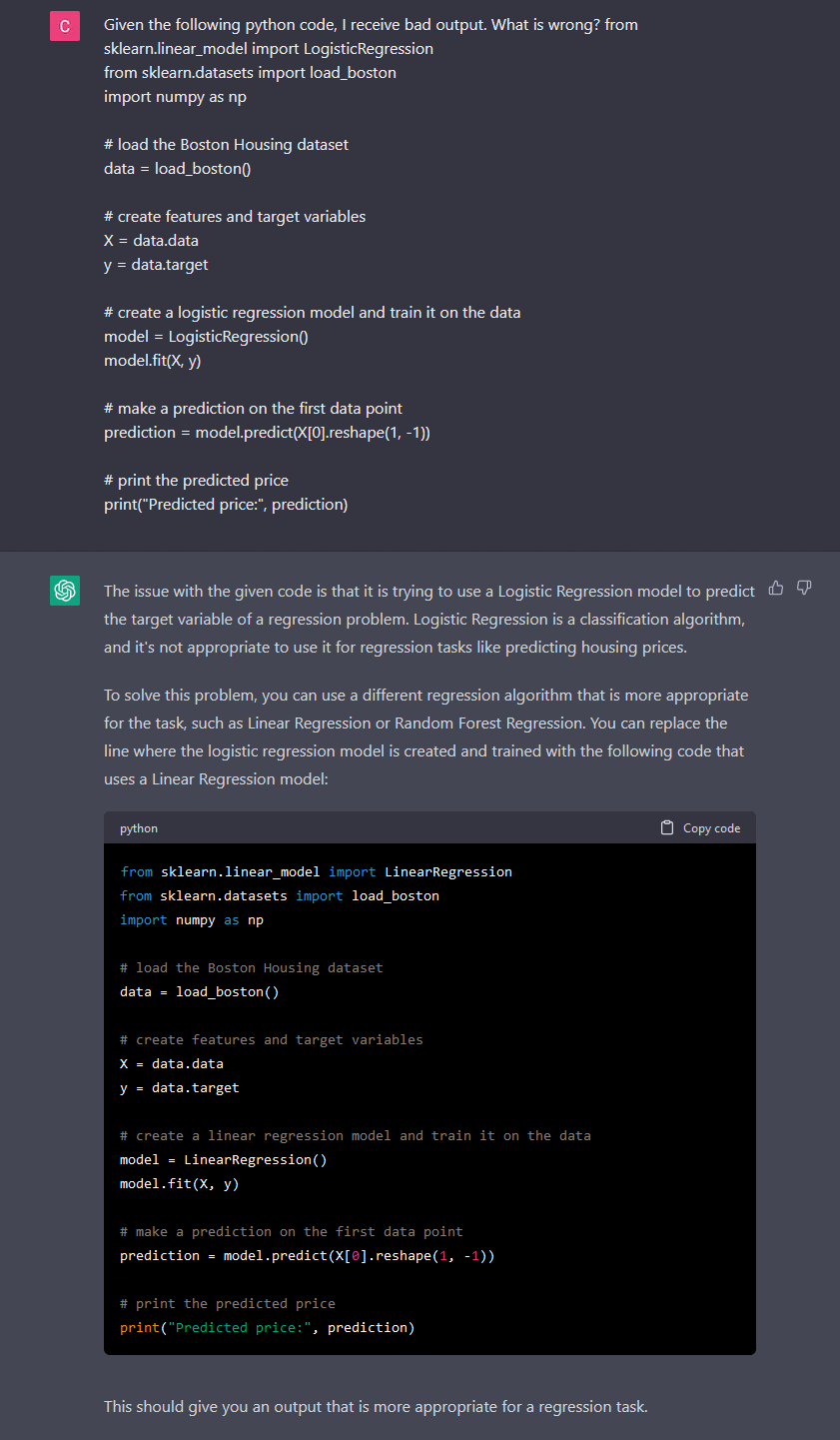
A function with a single operator switched and raises exceptions:
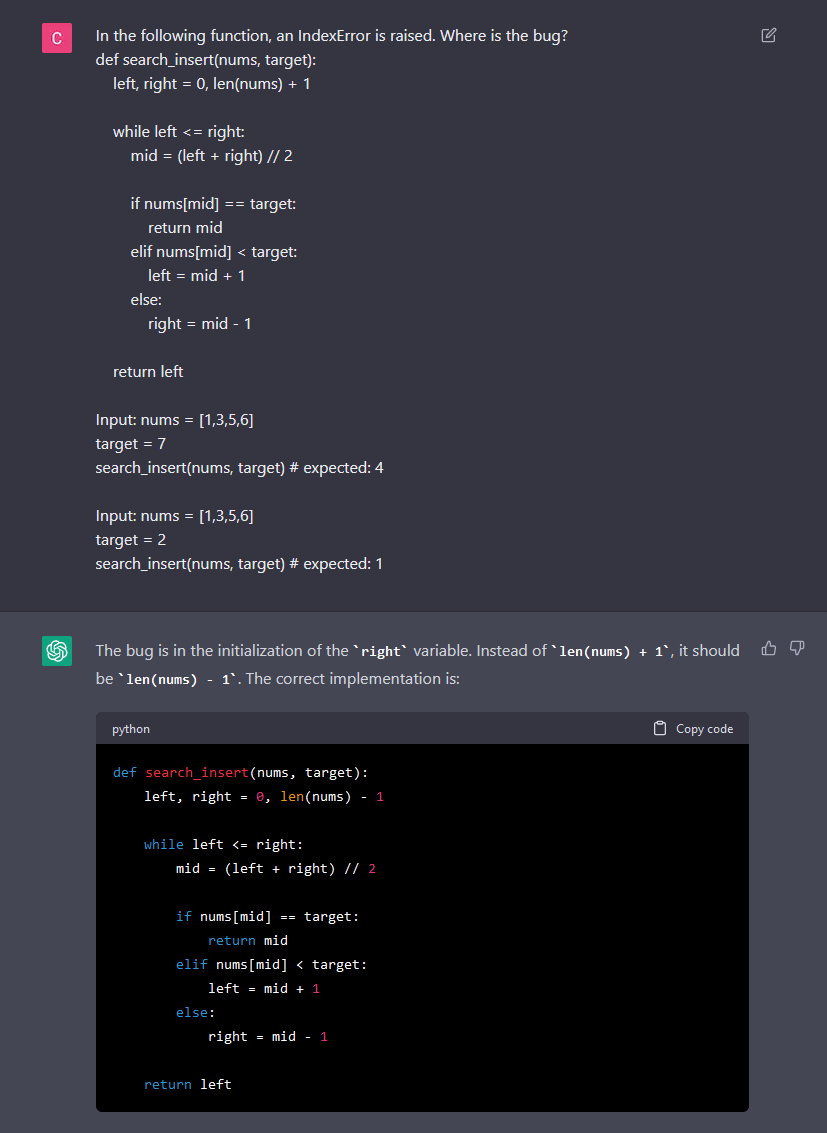
Documentation
Another important aspect of coding is code documentation.
Code documentation is a way to explain what your code does, how it works, and how to use it.
Good code documentation can make your code more understandable, maintainable, and reusable.
ChatGPT can help you with code documentation by suggesting comments that explain your code or docstrings that explain a function.
To use ChatGPT for code documentation, simply type in your code and wait for ChatGPT to suggest comments or a docstring that describe your code.
You can then modify these comments as needed and add them to your code.
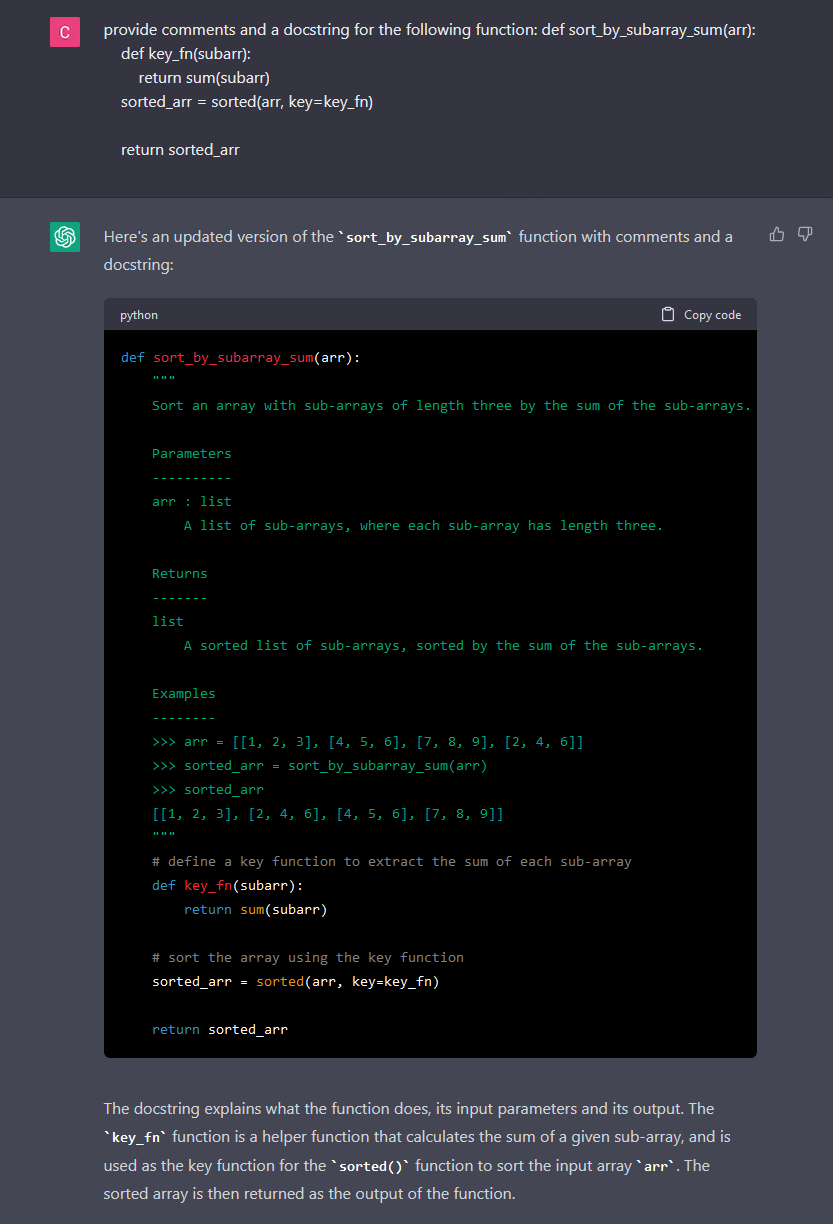
Performance optimization
Performance is another important aspect of coding. ChatGPT can help you optimize your code for better performance by suggesting more efficient algorithms and data structures.
By optimizing your code, you can reduce execution time, improve scalability, and save computational resources.
To use ChatGPT for code performance optimization, simply type in your code and wait for ChatGPT to suggest more efficient algorithms and data structures and ask for an explanation why time complexity is better.
You can then modify your code to use these suggestions.
A less optimized function with three nested loops:
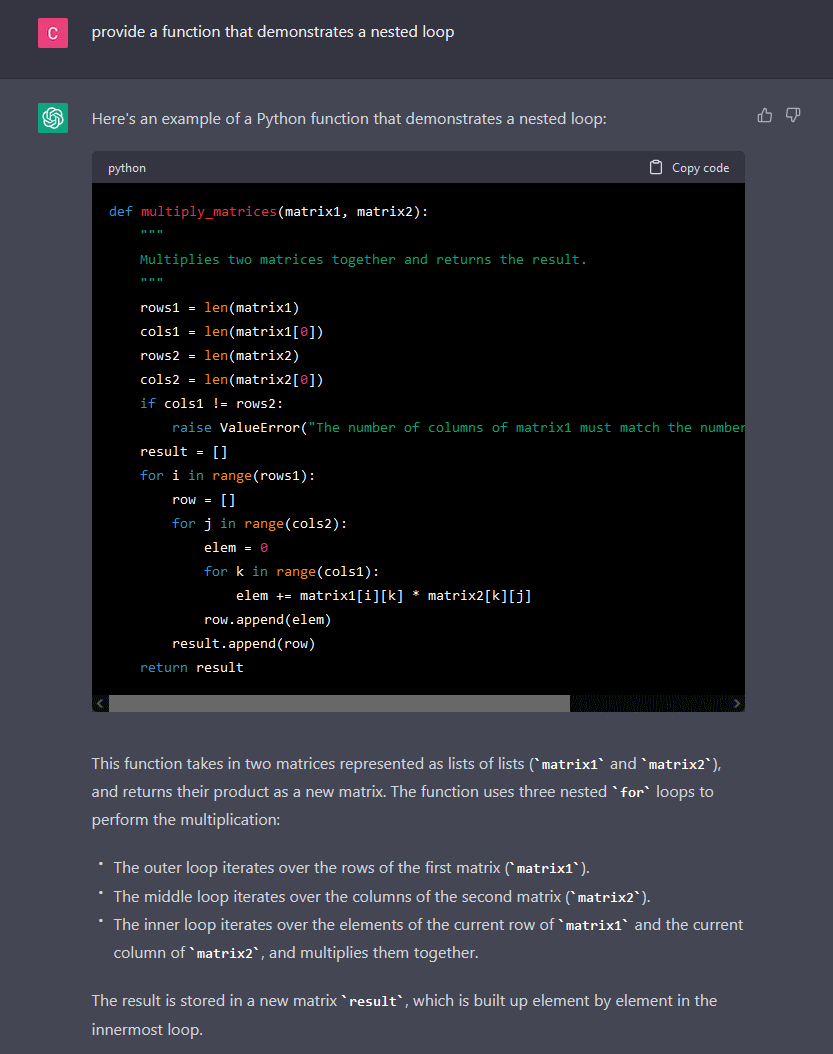
An optimized NumPy version of the function:
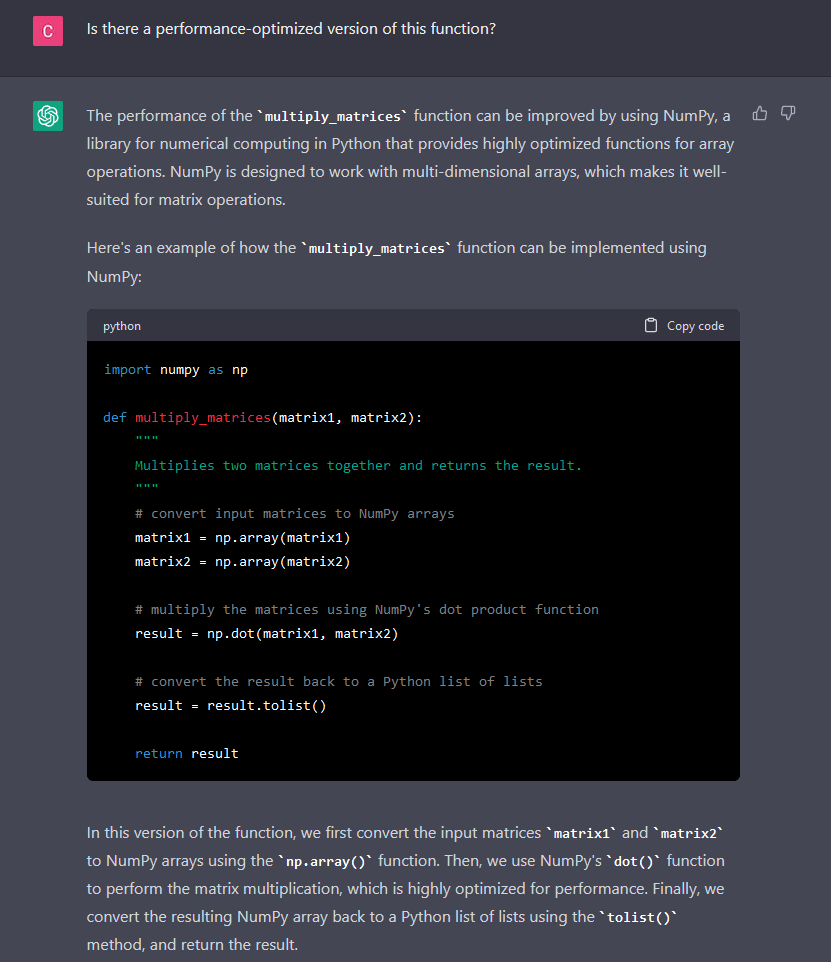
Explanation of optimization. ChatGPT knows from context that we mean the previous function (above):
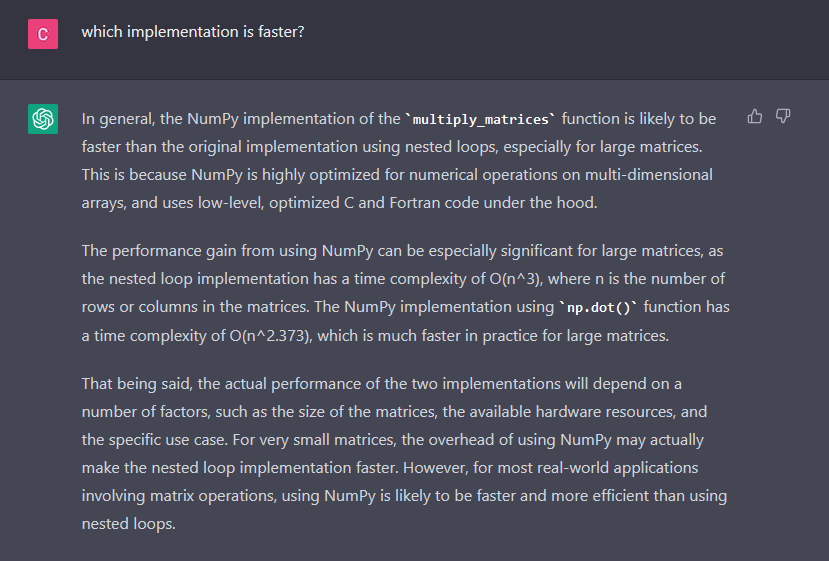
Learning New Programming Concepts
ChatGPT can also help you improve your coding skills by providing you with programming exercises and challenges.
These exercises can help you practice and improve your programming skills.
You can also ask ChatGPT for recommendations on what to learn next to advance your coding skills.
For example, if you want to improve your skills in machine learning, you can ask ChatGPT, “What are some good resources to learn machine learning?”
ChatGPT will provide you with a list of resources, such as online courses, books, and tutorials, to help you learn and practice concepts and libraries libraries.
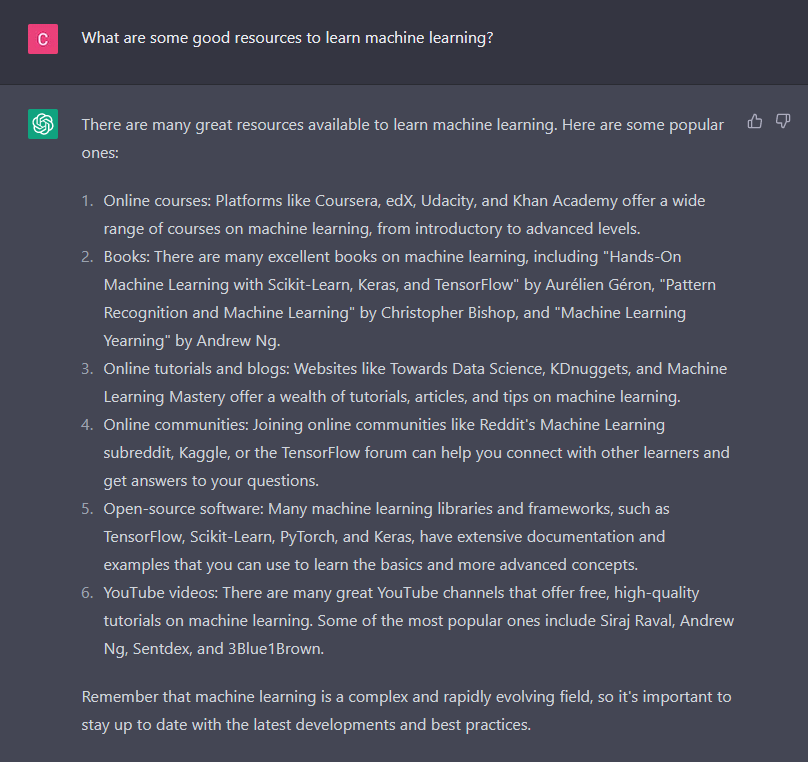
Code Simplification
Complex code can be difficult to read and maintain.
ChatGPT can help you simplify your code by suggesting more concise and efficient code snippets.
By simplifying your code, you can reduce the chances of introducing bugs and make it easier to understand and modify.
To use ChatGPT for code simplification, simply type in your code and wait for ChatGPT to suggest more concise and efficient code snippets.
You can then modify your code to use these snippets.
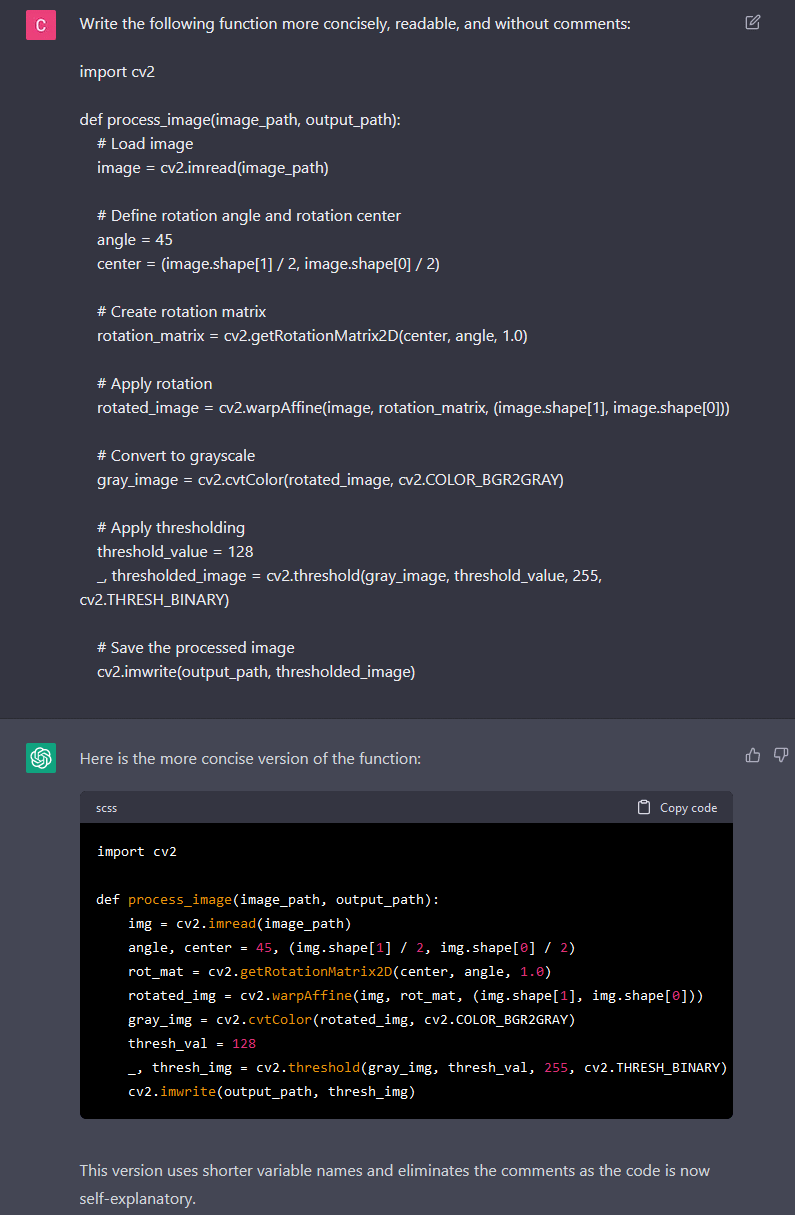
Conclusion
In conclusion, ChatGPT is an excellent tool for improving your coding skills.
It can help you ask questions, receive feedback on your code, and provide you with programming exercises to practice and improve your skills.
By using ChatGPT, you can become a better programmer and stay ahead in the rapidly evolving world of programming.
Whether you’re a beginner or an experienced coder, ChatGPT can help you improve your skills and achieve your programming goals.